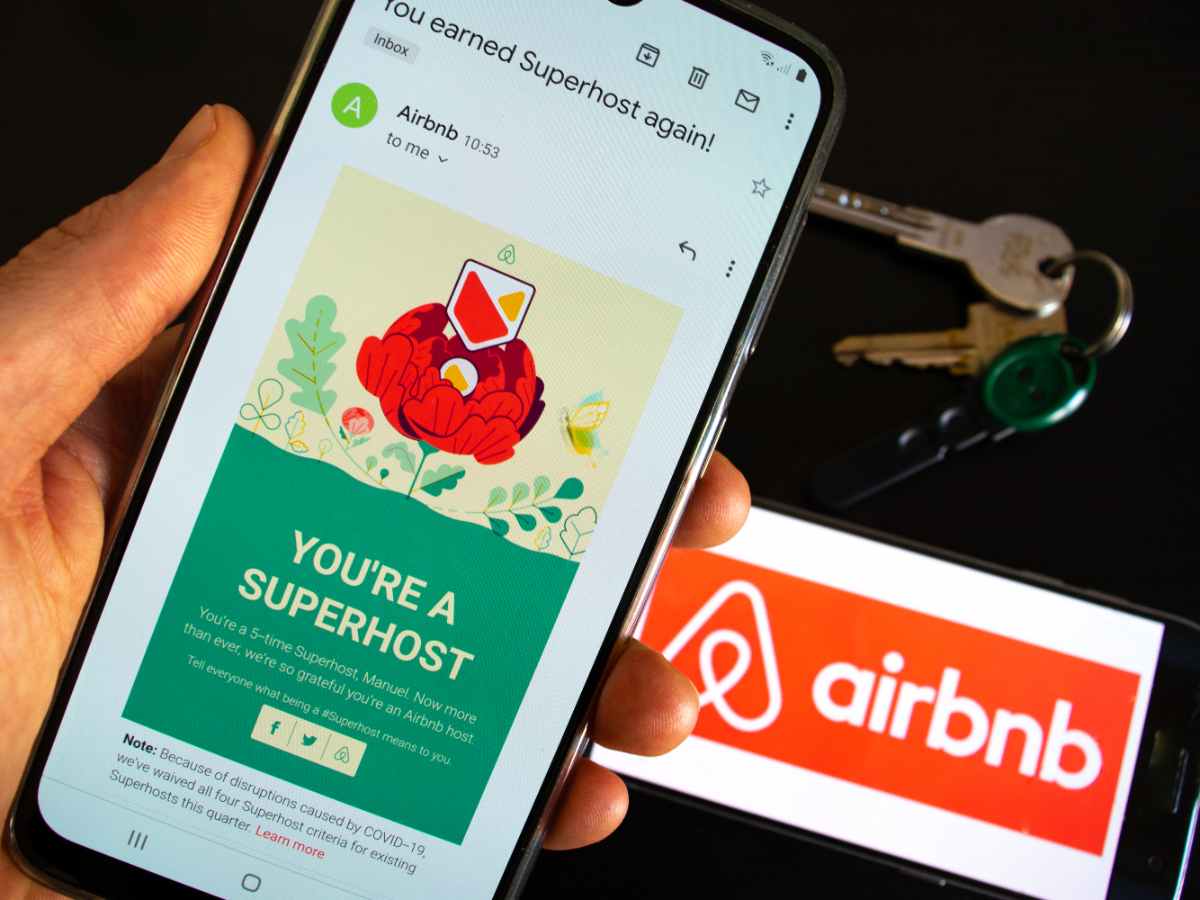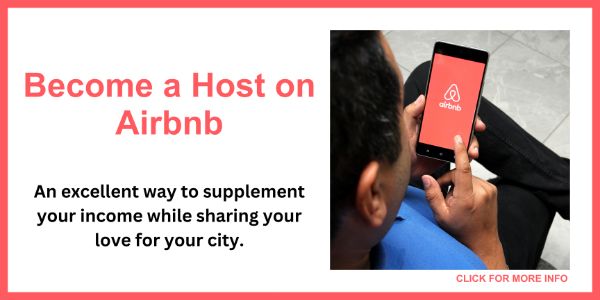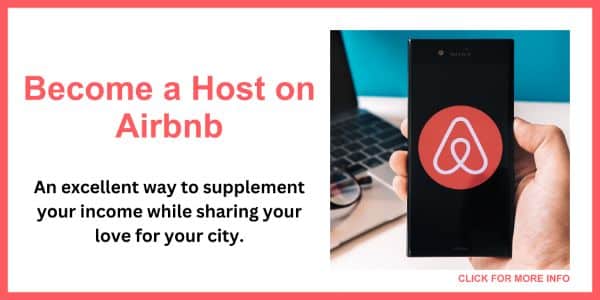For many individuals, Airbnb has become a valuable source of additional income. By renting out your home or a part of it, you can earn money, meet people from all over the world, and share your local knowledge. But how does one get started as an Airbnb host? In this article, we will guide you through 10 steps to becoming a successful Airbnb host.
Becoming an Airbnb host can be an excellent way to supplement your income while sharing your love for your city or region with travelers from around the globe. However, you might have questions about how to get started, what it takes to be approved, and whether hosting on Airbnb is still profitable. This comprehensive guide will answer all these questions and more, guiding you through every step of your Airbnb hosting journey.
Table of Contents
The Path to Approval: Becoming an Airbnb Host
To become an Airbnb host, the first step is to create a free account on Airbnb’s website. Once that’s done, you can click on “Become a Host,” fill out the required information about your listing, and submit it for approval. Typically, getting approved to be an Airbnb host can take anywhere from a few hours to a few days, depending on various factors such as your location and the completeness of your listing information.
While the approval process is straightforward, the key to a successful listing that attracts bookings is in the details. High-quality photos, a detailed and engaging description of your space, clear house rules, and a competitive price all contribute to a high-performing listing.
Is Hosting on Airbnb Profitable?
Yes, hosting on Airbnb can still be a lucrative venture. However, the amount of profit you can make varies depending on factors such as your location, the size and quality of your space, your nightly rate, and your occupancy rate. Some hosts earn a few hundred dollars a month, while others make several thousand. According to a report by Earnest, the average Airbnb host makes around $924 per month. But remember, your earnings will also need to cover any costs associated with hosting, like cleaning, maintenance, and utilities.
Starting an Airbnb With No Money
Starting an Airbnb with no money can be challenging. However, if you already own a property or have a rental agreement that allows for subleasing, you could potentially start without a significant upfront investment. Keep in mind that you’ll need to cover the costs of preparing and maintaining your space for guests, and there may be additional costs for things like insurance and local permits or licenses.
The 10 Steps to Becoming a Host on AirBnB
1. Research the Market
Before you dive into hosting, conduct some market research. Find out the average rental price for similar properties in your area. Check if there is demand for rentals in your location and what kind of guests your property might attract. These insights will help you set competitive prices and tailor your listing to attract your target audience.
2. Check Local Regulations and Zoning Laws
Before becoming a host, it’s crucial to understand and comply with local laws and regulations regarding short-term rentals. Some cities have specific restrictions or require hosts to obtain permits or licenses. Also, if you are part of a Homeowner’s Association (HOA), make sure to check their rules too.
3. Prepare Your Property
Your property should be clean, safe, and comfortable for guests. Ensure that all appliances are working correctly and that you provide all the basic amenities, such as clean towels, bed linens, and Wi-Fi. Add personal touches to make your space inviting and unique.
4. Create Your Listing
Creating your Airbnb listing is where you showcase your property to potential guests. Use high-quality photos, write a detailed description highlighting your property’s unique features and nearby attractions, and clearly state your house rules.
5. Set Your Price
When setting your price, consider your costs (such as cleaning, utilities, and Airbnb fees), the prices of similar listings in your area, and your property’s unique selling points. Airbnb’s Smart Pricing tool can help you adjust your prices based on demand.
6. Apply to Become a Host
To become an Airbnb host, you need to create an Airbnb account and then follow the steps to list your space.
7. Await Approval
Airbnb will review your listing before it goes live. This process can take a few hours to a few days. In some cases, Airbnb may require additional information or verification.
8. Be Ready for Declines
Sometimes guests may decline your property. Don’t take it personally; it’s part of the process. Use these opportunities to improve your listing and make it more appealing.
9. Provide Excellent Customer Service
Once you start hosting, providing excellent customer service is key to getting positive reviews and attracting more guests. Be responsive, helpful, and try to solve any issues promptly.
10. Learn and Improve
The best hosts are always learning and improving. Review guest feedback, learn from other hosts, and update your listing as needed.
Being an Airbnb host can be a rewarding experience, but it does require effort and commitment. By following these steps and consistently providing excellent experiences for your guests, you can build a successful hosting business on Airbnb.
The Profitability of Airbnb Hosting
Wondering if Airbnb hosting is profitable? The answer is, it can be. The amount you earn as an Airbnb host depends on several factors, including your property’s location, size, amenities, and how frequently it’s booked. On average, Airbnb hosts can make between $200 to $10,000 per month (source).
Why Do Hosts Decline on Airbnb?
There are several reasons why hosts might decline a booking on Airbnb. Some hosts may not feel comfortable with the potential guest, while others might decline if the guest doesn’t meet the requirements set in their house rules. Some hosts may also decline if the requested dates don’t fit into their schedule or if the booking isn’t a good fit for other reasons.
The Challenges and Rewards of Being an Airbnb Host
Hosting on Airbnb requires a significant commitment. You’ll need to maintain your property, manage bookings, communicate with guests, and resolve any issues that arise. But while it can be challenging, many hosts find the experience rewarding. Not only can you earn additional income, but you also have the chance to meet people from around the world.
What Percentage Does Airbnb Take?
Airbnb charges hosts a service fee for each booking. For most hosts, this fee is 3% of the booking subtotal. However, for hosts who offer experiences or use Airbnb Plus, the fee may be higher. You can find more details on Airbnb’s Host Service Fees page.
Conclusion
In conclusion, becoming an Airbnb host is a potentially profitable venture that offers the opportunity to share your space and your city with travelers from around the globe. With careful preparation and a commitment to providing great experiences for your guests, you can create a successful listing and enjoy the financial and personal rewards of being part of Airbnb’s global community of hosts.
Remember, as a host, you’ll also have expenses, such as cleaning, maintenance, and Airbnb’s host service fee, which is typically around 3% (source). And don’t forget about taxes; you’ll need to report your Airbnb income on your tax return.
Hosting on Airbnb without upfront money might be challenging. You need a property to rent out, and preparing it for guests (including furnishing it, if necessary) may require some investment. But if you already have a suitable space and are ready to put in the effort, Airbnb hosting can become a viable source of income.
For more information, tips, and resources, check out our pages on www.pigsflycheap.com. Happy hosting!
This blog post is for general informational purposes only and does not constitute legal or tax advice. For advice on your specific situation, consult a professional.




